Hedgerows
Little Green Change worked with Dorset Climate Action Network (Dorset CAN) to engage local schools, community groups and residents in hedgerow surveying in Lyme Regis, as part of Dorset CAN’s Great Big Dorset Hedge project.
Funded by Lyme Regis Town Council, we organised hedgerow surveying sessions in May 2024 for local residents (community sessions), The Woodroffe (secondary) School, and The Lyme Regis Scouts group (Cubs). We also created and delivered a new assembly for St Michael’s CE VA Primary School, The Woodroffe School, and the Lyme Regis Scouts group.
You can find information about hedgerows below, along with a selection of project photographs and feedback comments.
What is a hedgerow?

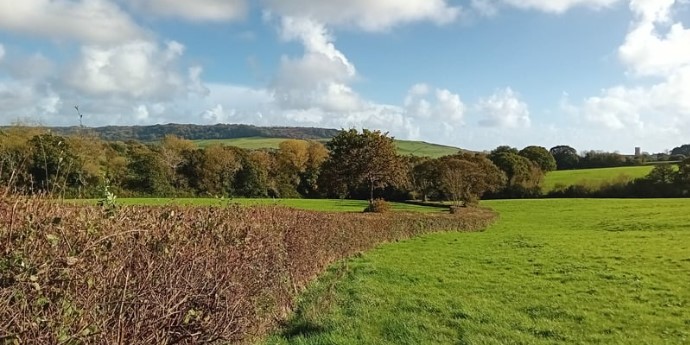
A hedgerow is a line of shrubs and trees that have been planted close together and trained, pruned and managed in height and width to form a barrier, or to mark the boundary of an area. They are often found along footpaths, roads, separating fields and gardens, and along railways.
Typical species of trees and shrubs typically found in a countryside hedgerow include hawthorn, blackthorn, elder, field maple, hazel, oak, ash, crab apple, rowan and holly.
Rambling and climbing plants typically found in a hedgerow include bramble, honeysuckle and dog rose.
FACT: The oldest hedgerow in England is over 900 years old!
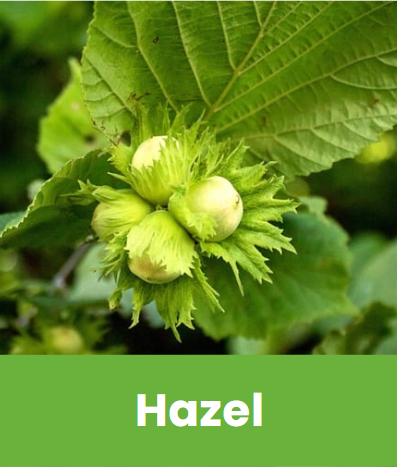
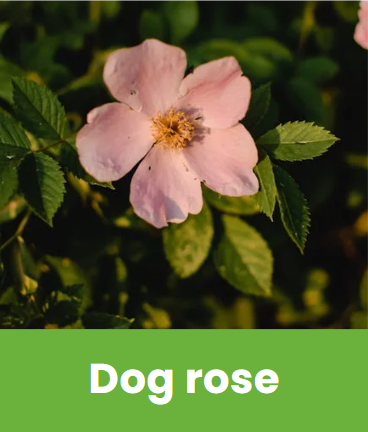
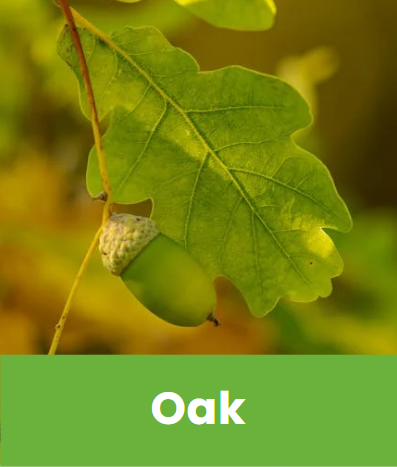
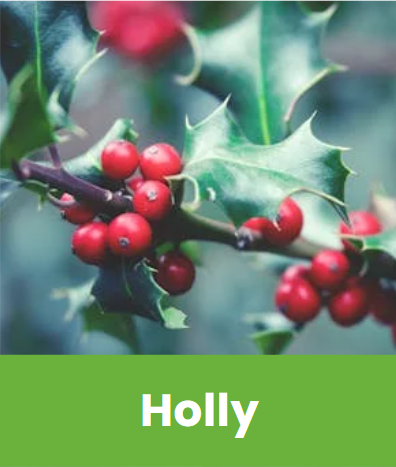
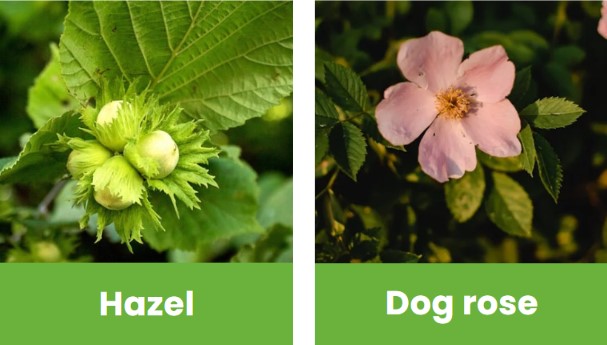
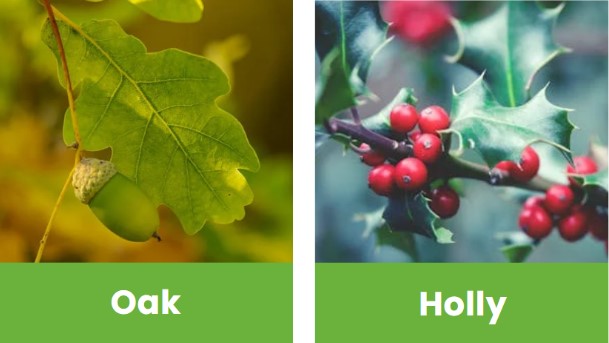
Why are hedgerows important?
Hedgerows are a culturally and historically important feature of the countryside. They are also important to wildlife, acting as wildlife corridors between fields, roads and pathways. Animals can move safely along hedges out of the sight of predators to find food, shelter and a mate.
Thick hedging provides an ideal habitat for nesting birds, hibernating hedgehogs, and small mammals like dormice. The base of a hedge is ideal for small mammals, lizards, snakes, frogs and toads to seek refuge and find food in.
Protecting against climate change
Hedgerows capture huge amounts of carbon, they can help prevent flooding and soil erosion (soil slipping or blowing away), and they can create shelter from extreme weather.
The roots of hedges hold soil and retain/absorb water - protecting land, roads and housing from flooding.
Hedgerows are pollution busters; as well as taking excess carbon out of our atmosphere and giving us oxygen, plants (especially trees and hedgerows) absorb atmospheric pollutants, helping to clean our air.
FACT: Hedgerows have been in decline since the 1950's, with some replaced by fences that don’t have the same benefits.

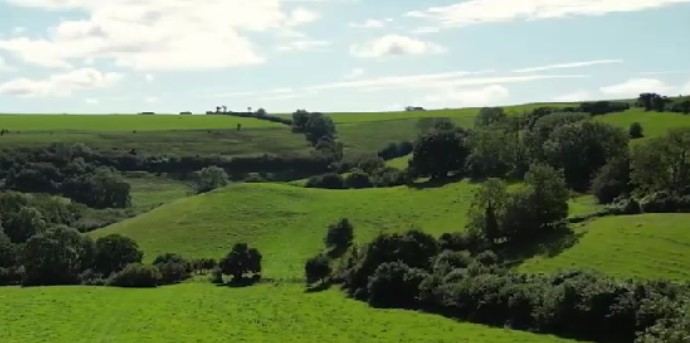
Benefits to people
Being out in nature can have mental health benefits, with hedgerows adding to the visual beauty of the countryside, parks, towns and cities; whilst improved air quality from hedgerows and trees have physical human health benefits.
Hedge planting and hedge management projects can provide volunteering opportunities and jobs, bringing
people closer together and closer to nature.
Correctly managed hedging can provide timber for tools, furniture and fuel.
In season, hedgerows provide food (nuts and berries) for animals, including humans.
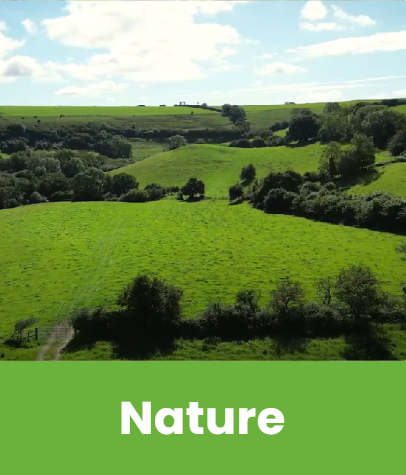
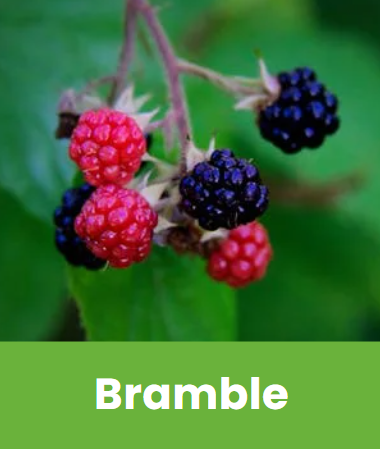
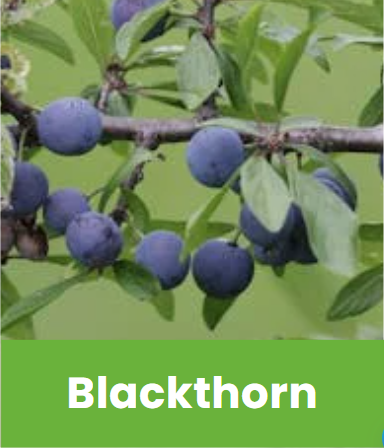
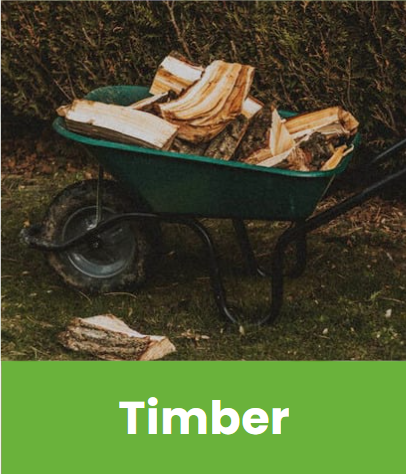
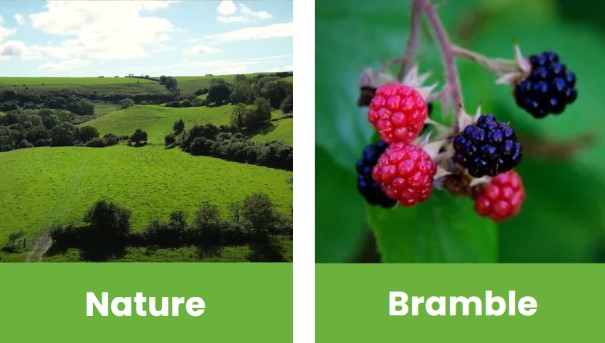
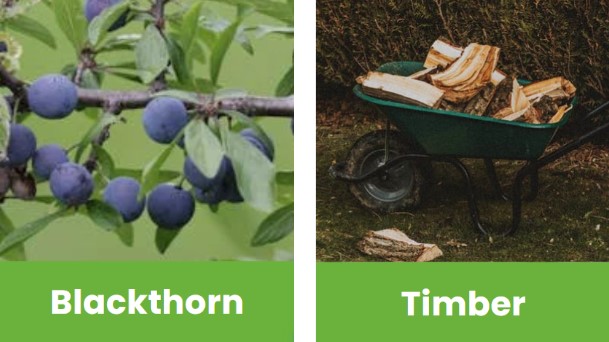
Maintaining healthy hedgerows
Hedgerows need to be maintained responsibly to ensure they remain a valuable habitat and food source for wildlife. Overcutting them too often can damage a hedgerow and can reduce flowering, as well as reducing berry and nut production in the species that produce these. A healthy hedgerow is thick and bushy, creating an excellent bird nesting habitat. Its height is kept limited to prevent it turning into a line of trees.
Hedges should never be cut during the bird breeding season, which is from 1st March to 31st August each year, unless required for safety reasons.
Having a range of plant species that make up a hedgerow, rather than just one, helps support a greater number of insects, birds and mammals. Hedgerows with native flowers and grasses at their base are excellent for wildlife, providing places where they can hide and mate, as well as nectar and pollen sources for bees, butterflies, moths and other beneficial insects.
Beetles, toads, newts and lizards, like the slow-worm, all like dense growth at the base of hedgerows, as do hedgehogs.
These are some of the reasons why maintaining a healthy hedgerow is so important.
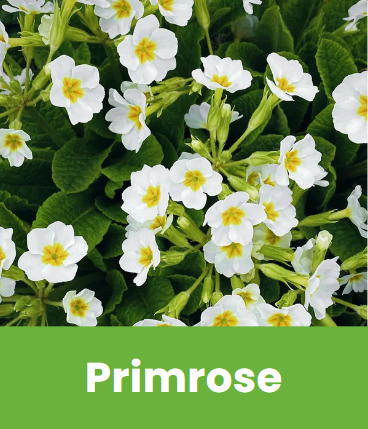
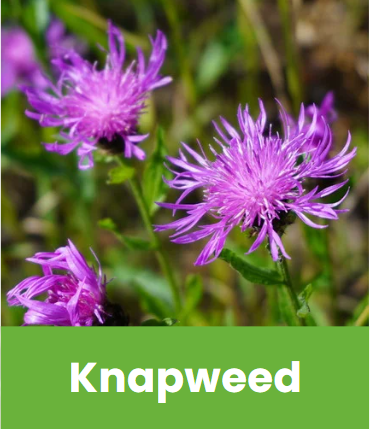
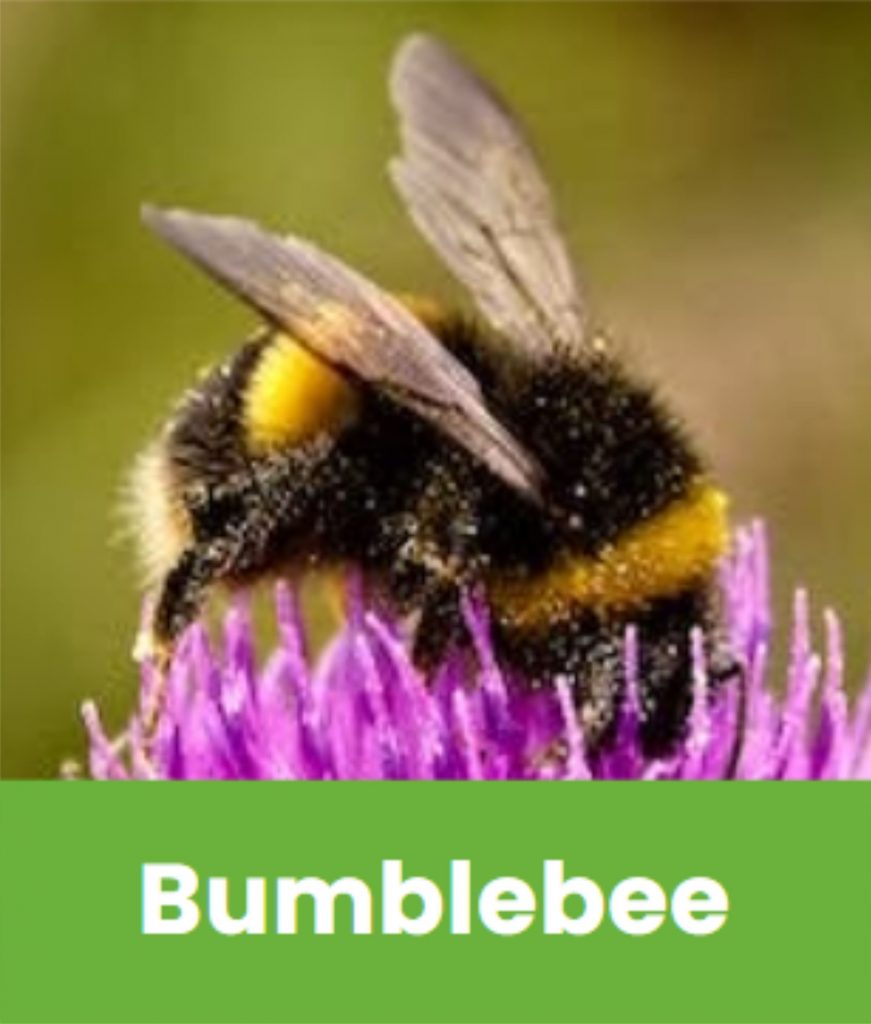
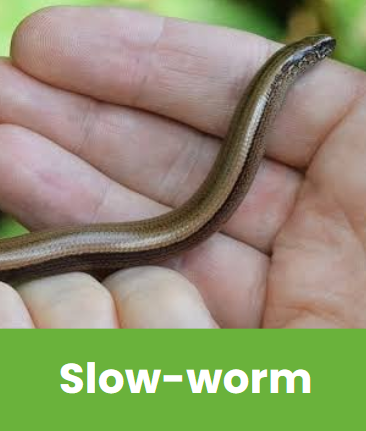
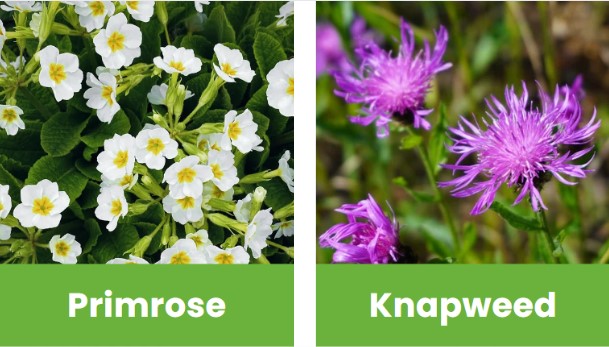
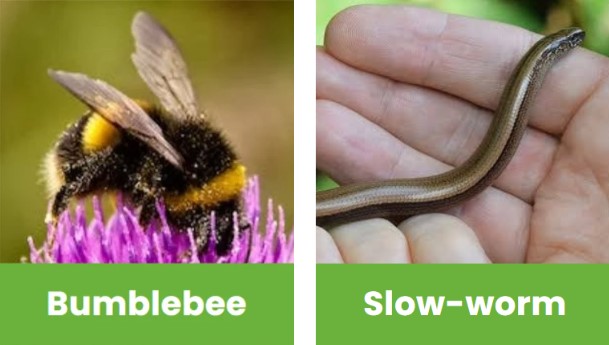
How you can help
Help plant a new hedgerow on your school grounds, or help fill gaps in an existing one.
Help survey an existing hedgerow on your school grounds, or in the local community, and record the condition of the hedgerow and the species of shrub and tree you find using our hedgerow guide. Join one of our community surveying sessions in May 2024.
Sign up to The Great Big Dorset Hedge, organised by Dorset Climate Action Network, and encourage family and friends to take part in a hedgerow surveying event outside of Lyme Regis. They have events taking place across Dorset in 2024.
Photos
Below are a selection of photos from our community and school surveying sessions in Lyme Regis, carried out as part of our hedgerows project in 2024.
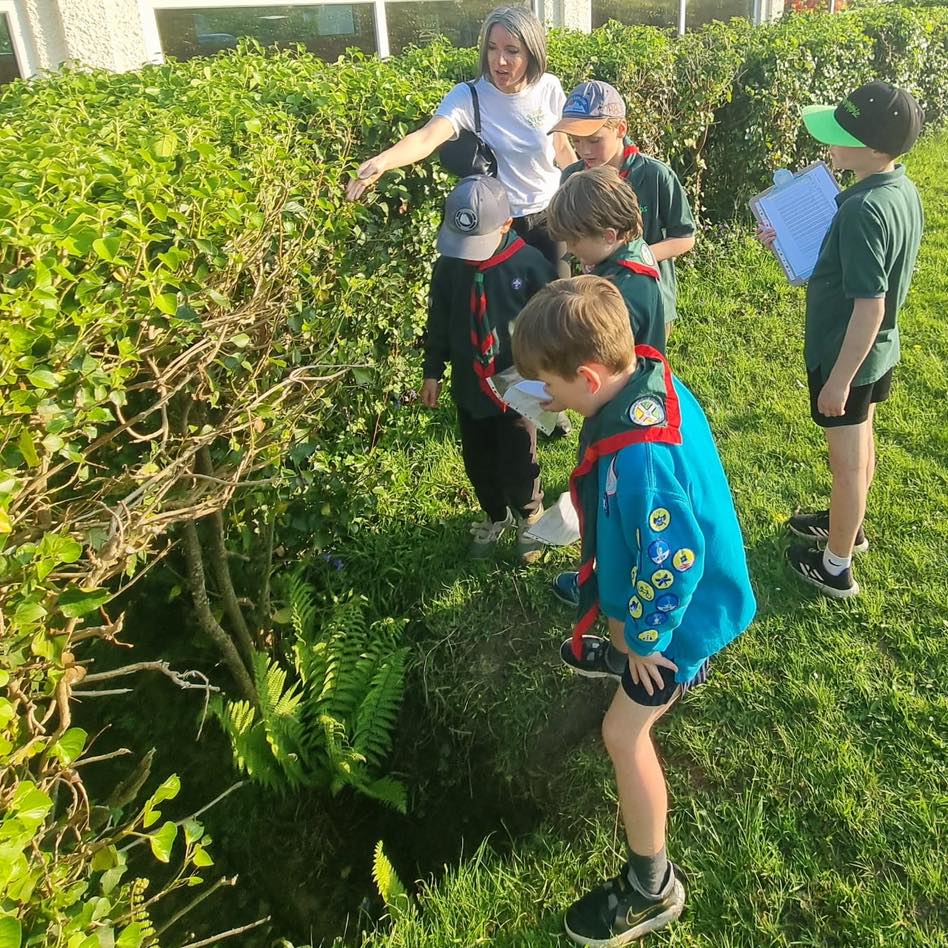
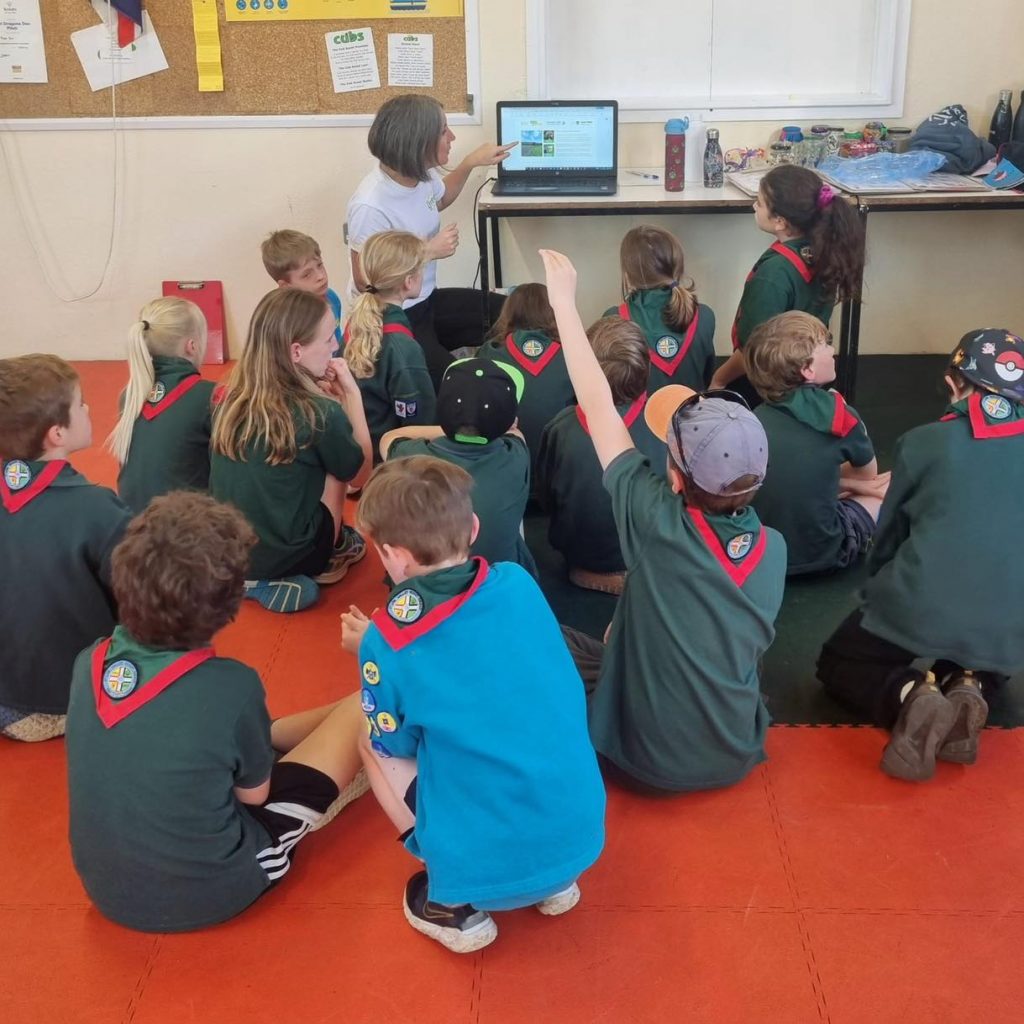
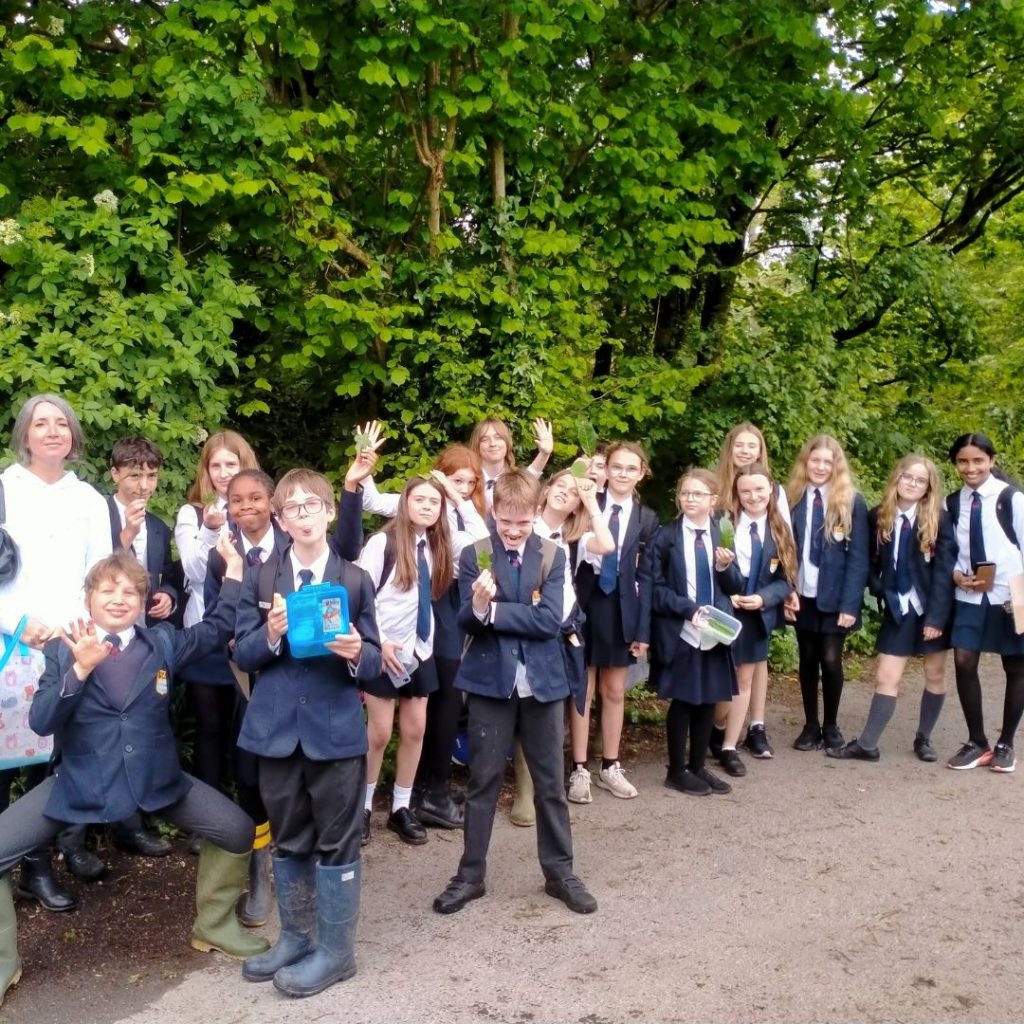
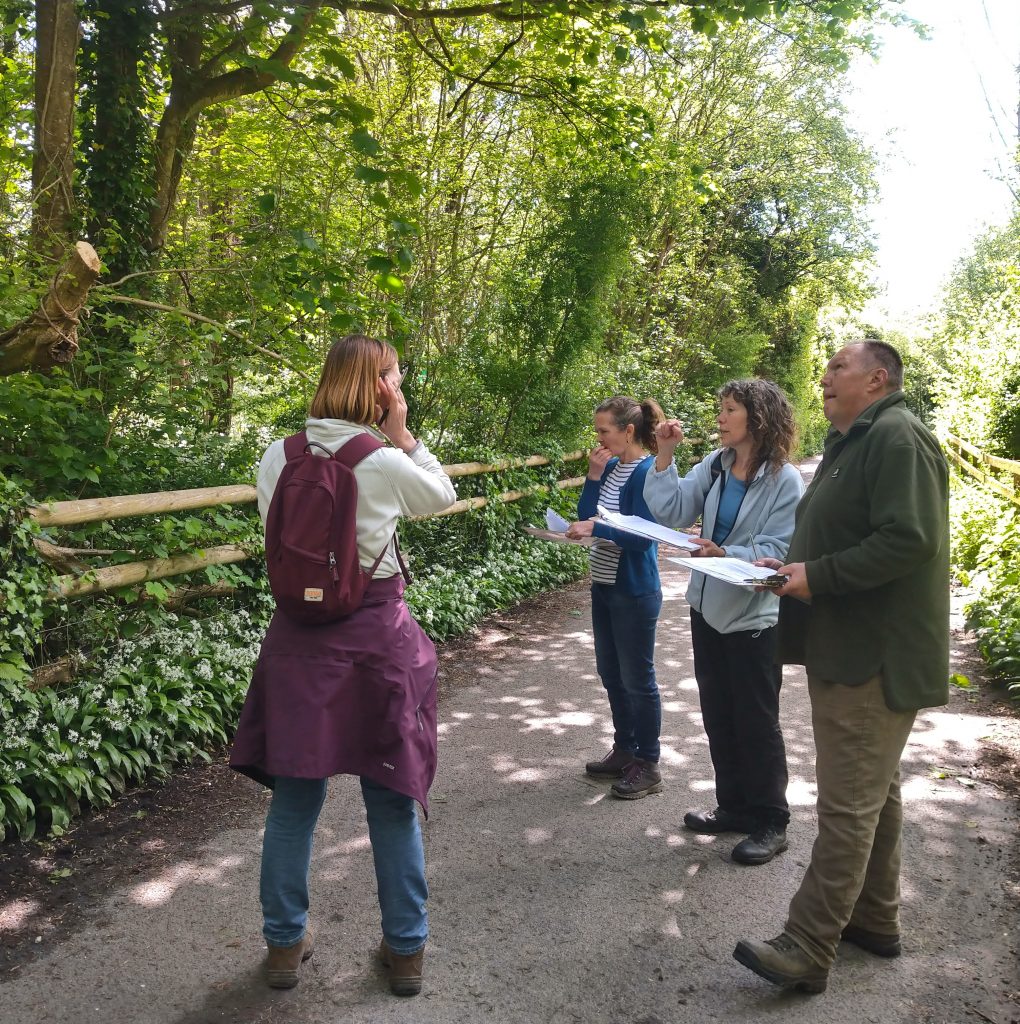
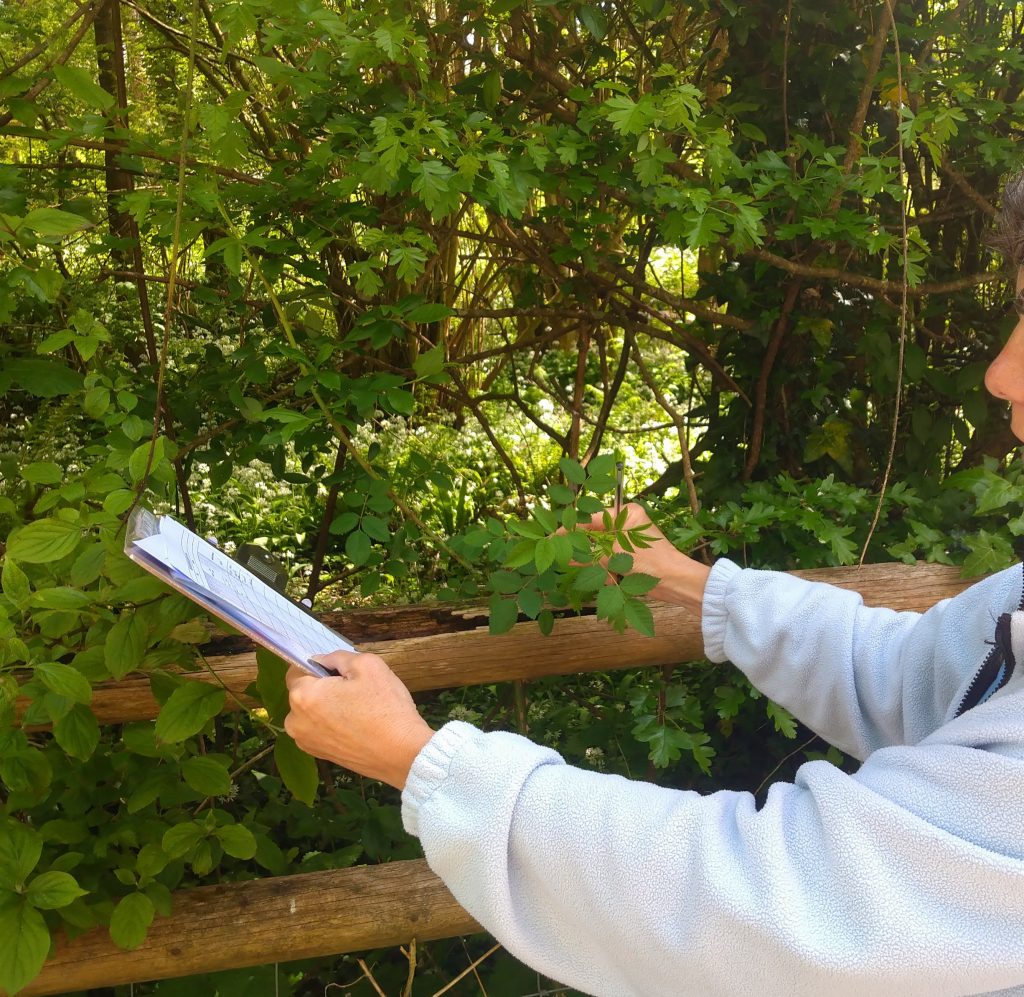
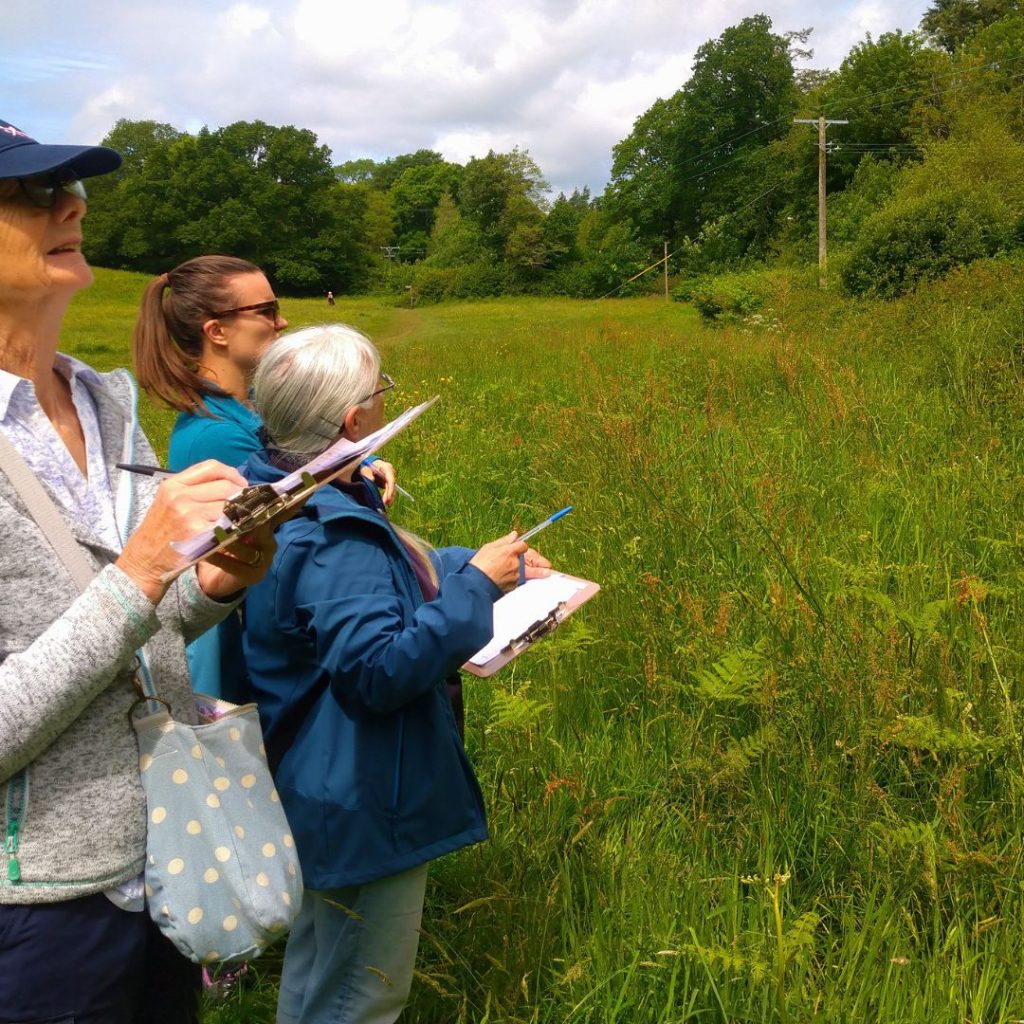
Feedback
We had a large quantity of positive feedback from participants (under 16's and adults). Comments included:
“[I learnt] more about the types of trees, habitats, importance of hedgerows in urban areas linking to the countryside....very informative.” - Kate R, local resident; “Understanding how to grade hedges, identify plants and trees, and what’s needed to encourage wildlife.” “Very enjoyable.. I would be happy to do it again and for longer.” - Angela S, local resident; "Fantastic, engaging session. Thank you." - Fi S, Cubs Leader"; "[I learnt] how important hedgerows are" & "I loved all the facts."- Olivia and Mabel, Cubs;
"I learnt about plants that grow in hedgerows." - Chanie, Elijah and Daniel, Cubs; "[I learnt] that hedgerows can help climate change and soil erosion." "It was fun and I enjoyed measuring the width and length [of the hedgerow] and finding insects and animals."- Aliana, Cub; "[I learnt] hedgerows are important for food" & "birds nest in hedges." - Rocco & Kaicee,
Cubs; “[I learnt about] different types of hedges, and the heights and width of hedges. I had a lot of fun and it was very interesting.” - Amber, student at The Woodroffe School; “[I learnt about] different micro climates of trees. It was fun to learn about hedgerows and
trees.” - Unnamed student at The Woodroffe School; "[I learnt] how to start a hedgerow, good plants to use, how long they take to grow, what a good hedge looks like. Excellent session. Thank you” - Jo, The Woodroffe School.
About Little Green Change
We're an award-winning, non-profit social enterprise specialising in environmental education and opportunities for primary and secondary-aged children, both directly in schools and in communities across the UK.
Our aim is to inspire, educate and facilitate action, benefitting both the planet and people. We do this through our educational Schools Programme, expert speaker talks, environmental events, competitions, projects, annual magazine, awards ceremony and initiatives.
Awards
We're proud to have won the Green/Eco Business of the Year Award at the Jurassic Business Awards 2024, a Judges' Choice award at the UK StartUp Awards 2024 South-West, and a Sustainable Business Award 2024 from Litter Free Dorset. We're also finalists at the The Small Awards 2024, and The Good Small Business Awards 2024. Our Founder and Director, Clare, is a finalist at the BBC Make a Difference Awards 2024 (Green Award category) for her work with Little Green Change.

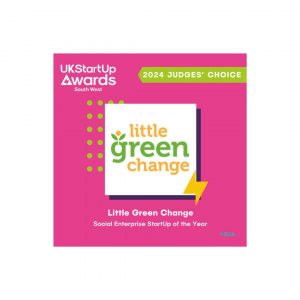


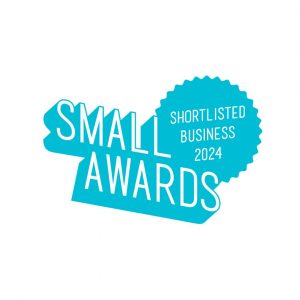
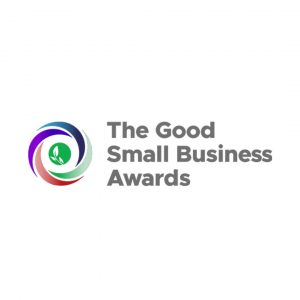
We're accredited members of Social Enterprise UK, and Dorset Climate Action Network



